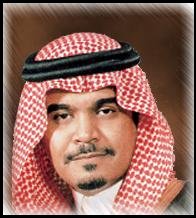









|
|


For those who know him, Bandar has grown up unhappy and deprived of any real fatherly love. His mother was a slave girl of Sudanese origin, which caused his father to steer clear of him. Because of the status of his mother, his father, Defence Minister Sultan has for a long time denied that Bandar was his son. So intense was Sultan's irrational behaviour that he thought that Bandar would grow up with a slave mentality. Sultan only refrained from disowning Bandar as a result of King Faisal's intervention. Bandar was born in 1950 and, owing to his father's rejection spent most of his childhood with his uncles. He would only meet other members of his family on special occasions such as at gatherings at his aunt Hissa al-Sudeiriyah. He also made good childhood relationships with the Sudeiri children, such as his half brothers Fahd bin Sultan (born in 1953) and Khalid bin Sultan (1949) and also with his cousins Mohammed bin Fahd (1948), Sultan bin Fahd (1951) and Su'ud bin Nayef (1955). At the insistence of, his now mature child and Bandar's uncles, Sultan eventually agreed to meet Bandar and patched up his relationship with him. To Sultan's surprise, the unwanted child showed a high level of intelligence, which he had developed in the company of the Sudanese in whose company he grew up after being rejected by his other brothers. Bandar was then sent to attend American schools along with the other Sudeiri children. In 1967, he joined the British Air Force Academy in Cornwall. After his graduation he was sent for further training in American air bases in Texas and in Carolina. At the end of his air force training, Bandar joined John Hopkins University in the United States where he graduated four years later in International Relations and Politics. Bandar's relations with the United States started under the Presidency of Jimmy Carter where he built up strong ties with Carter's collaborators, Hamilton Jordan and Robert Strauss. He thus, gradually eased himself into the position of intermediary between his country and the American Administration by conveying messages and views between the two sides. In 1979, during a trip to the United States, Bandar paid a visit to President Jimmy Carter who stressed his country's strong relationship with Saudi Arabia and promised assistance to Riyadh if the Iran-Iraq war threatened the Saudi Kingdom. Following Iran's initial victories over Iraq and the occupation of part of the Basra area by Iranian troops, the United States sent on 28th September 1981 a delegation to Arabia headed by General David Jones, joint Chief of Staff, to convey to them that the turn of the war was worrying Washington who feared the fall of the House of Saud. The American delegation was welcomed at Dahran Airport by Prince Fahd bin Abdallah and Prince Bandar who was then promoted to the position of commander of a squadron of jet fighters. The House of Saud, which was already alarmed by Iranian victories over Iraq, enabled Bandar to play a key role in acquiring AWACS radar planes. Requested by Bandar, General David Jones conveyed to the Carter Administration the Saudi need for the AWACS, but the pro-Zionist lobby in Congress opposed the sale of AWACS to an Arab country on the grounds that it this would constitute a threat to Israel. But months later, the Saudi's felt an even greater need for the AWACS. They needed someone who could convince Washington of such an urgent need and give assurances that the radar planes would not be a threat to the Zionist State. The House of Saud agreed that the man tailor-made for this mission was Bandar, who indeed succeeded and thus, Arabia obtained the American-manned AWACS. His success earned him the promotion of Ambassador to Washington. Bandar soon became very friendly with the Head of Operations at the CIA who was in charge of contacting foreign diplomatic missions in Washington. He reportedly involved himself in CIA activities and surprised diplomats with lavish parties parties organised by his wife Fiha, daughter of Faisal bin Abdelaziz in defiance to the Kingdom's traditions and moral code. One of the missions entrusted to Bandar was to find a solution to the Palestinian issue and the recognition of Israel by the Arab States. Being involved with the CIA, Bandar also played a role in the Western Sahara in favour of Morocco in its dispute with Spain. Similarly, he played a role in the Lebanese conflict and was in charge of supplying the Phalangist movement with Saudi arms and armoured vehicles through Port Said and via Malta, but his plan was frustrated when the Maltese authorities intercepted the ship. In the Lebanon hostage crisis he stated to Al-Sharq al-Awsat (25/02/85) that he was making every effort to obtain the release of the hostages. In Sudan, he intervened on the side of the separatists of the South and provided them with financial and medical assistance. His relationship with the CIA led him to becoming entrusted with a mission to assassinate Sheikh Fadlallah of the Lebanese Hisbullah but the bomb intended to kill the man missed its target. Bandar also involved himself in many other murky affairs such as with the Nicaraguan Contras.
 Saudhouse is best viewed using Microsoft IE explorer |
 
|

 Online Resources:
Online Resources: